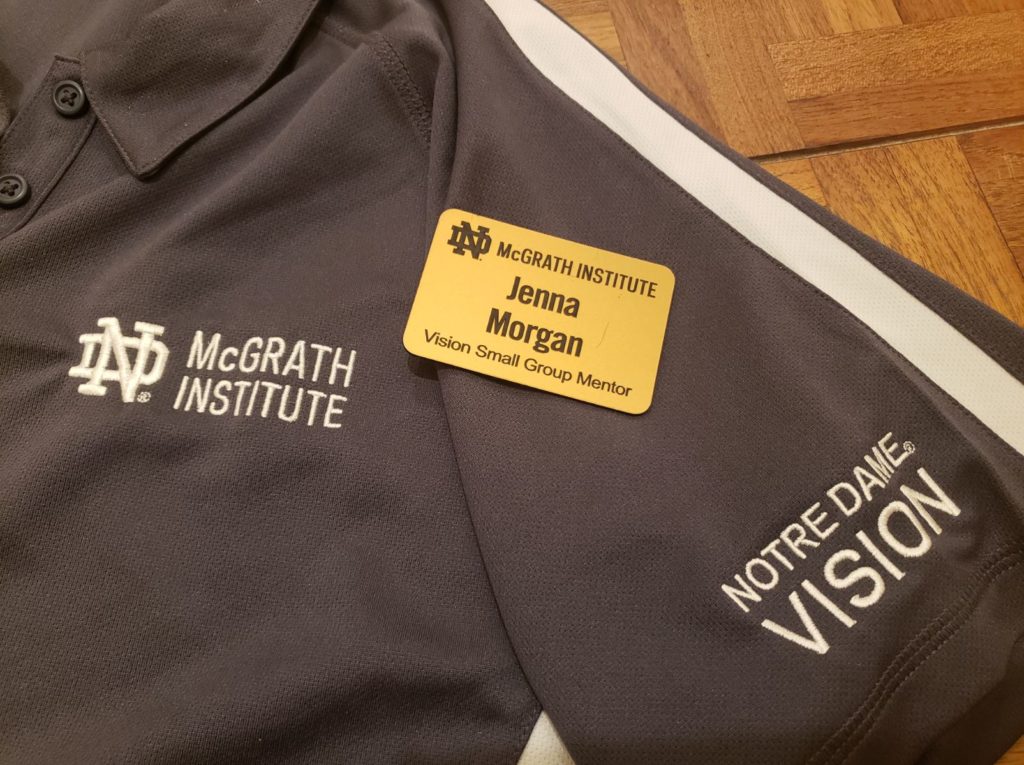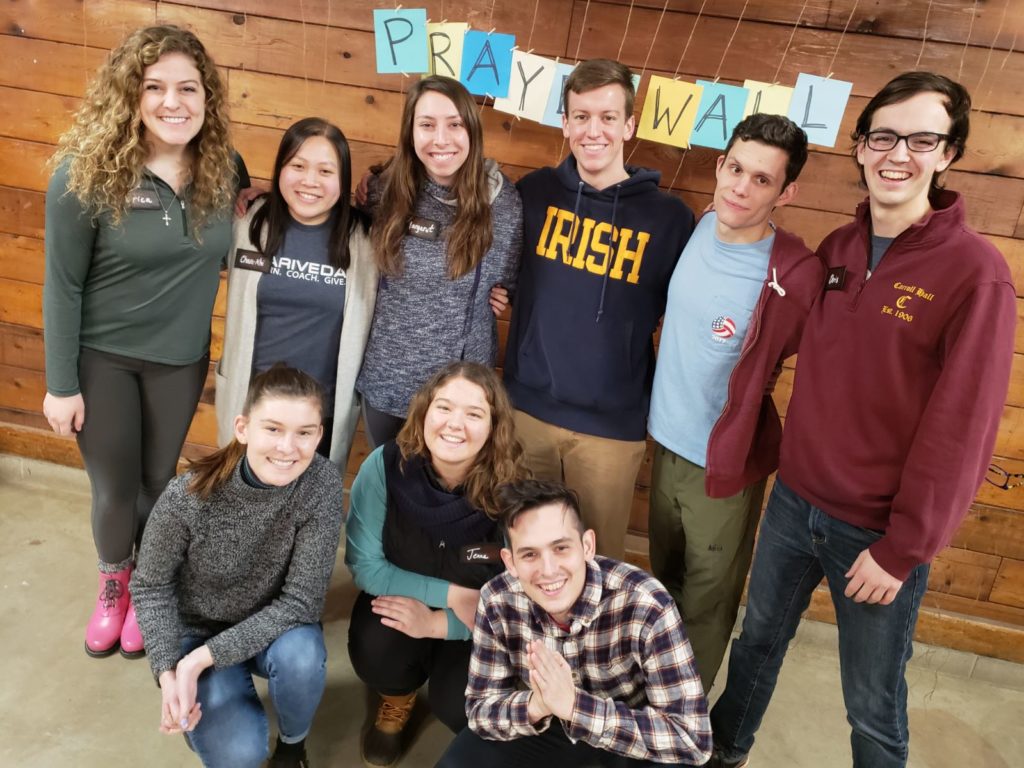Senior Anchor Intern, Jenna Morgan – Retreats and Pilgrimages
Yes, you heard me correctly, we are all called to be ministers… but maybe not in the way you might initially think of when you hear the word “minister.”
Until my sophomore year of college, I thought that to be a minister you had to have the job title and an official-looking nametag, particularly a gold one. I thought that to be a minister you had to have extensive training and some type of degree in theology, but I was wrong. Now, as an Intern for Campus Ministry, I have a new perspective on what it means to be a minister, and I’ve come to realize that though we are viewed as ministers in a more official capacity, we have actually been minsters all along, in those everyday moments. Allow me to explain.
First of all, let me start by debunking the myth of the gold name tag. Yes, it is pretty cool to have one with your name on it, but they are not as substantial as they appear. They are actually made of plastic and have the potential to scratch or crack. In many instances, those wearing the gold nametags can be just as much a participant as they are a leader. I was particularly confronted by this reality this past summer when I served as a mentor-in-faith for Notre Dame Vision. I soon discovered that though I was one of the individuals wearing a gold name tag, I was just as much a participant as everyone else. I was blessed to learn from the speakers, head staff, fellow mentors, and from the students we walked with throughout the summer. Our work did not originate from ourselves, we were simply instruments of God’s grace. I was humbled by each of the student’s thoughtful questions and responses, insights, and affirmations for one another; all they noticed, heard, and saw throughout the week. Some of the students asked questions that challenged the entire group to dig deeper and confront challenging questions and life circumstances.

Second, though having the training or a degree in theology may be helpful in some situations, it is by no means necessary to have these in order to be a minister. From my understanding and experience, the only requirement to be a minister is the willingness to intentionally share life with another. With this definition in mind, what constitutes ministry and who is a minister is wide open. Ministry definitely includes the commonly thought of activities and roles such as creating and running a retreat, leading a small group or Bible study, serving as a lector, Eucharistic Minister, or sacristan at Mass. But ministry also includes sharing a meal with someone, talking over a cup of coffee or tea, inviting someone to go to the Grotto, a Mass, or prayer service with you, sending them a good luck text before an exam you knew they were stressing about, remembering someone on their birthday, smiling and saying “Hi” to someone on the quad, helping someone set up for a dorm event they are running, and many more moments both large and small. These are all part of what is referred to as the ministry of presence: one’s attendance to another, with or without words, to be a vehicle of God’s love.

God calls us to serve, to minister. He calls us to meet others where they are at and become a part of their lives. He uses each of us and our unique gifts to hold each other up and to help each other grow in their journey with Christ. With so many different ways to minister, during this season of Lent I want to encourage you all to embrace your role as a minister. This call connects to the three elements of Lent: prayer, fasting, and almsgiving. In particular, almsgiving may be seen in the three areas of time, talent, and treasure. Therefore, almsgiving is not only about monetary contributions, but giving of ourselves through our time and talent. Look at those who surround you, and discern who you might reach out to or accompany. Deliberately plan to become a part of their lives so that you can fulfill God’s call to you, for we are all called to be ministers.